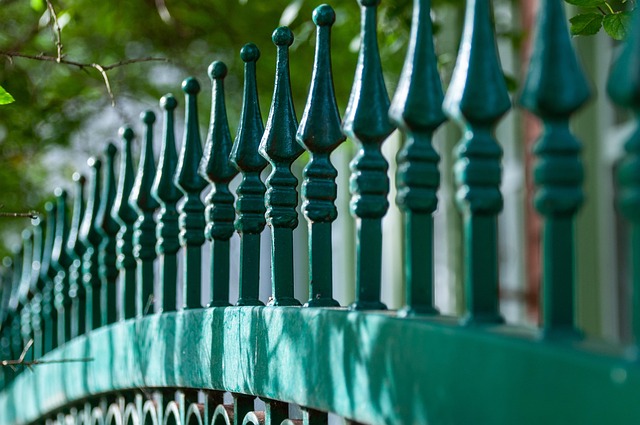New Bedford, MA residents increasingly seek eco-friendly fencing options that not only enhance their properties’ aesthetics but also contribute to environmental sustainability. This article explores green fencing alternatives available in the region, highlighting the numerous benefits of choosing environmentally conscious materials. From reduced carbon footprints to local ecosystem preservation, we delve into how sustainable fencing practices can positively impact both homes and communities in New Bedford.
- Exploring Green Fencing Options in New Bedford
- Benefits of Eco-Friendly Fencing for Your Property
- Sustainable Materials: The Future of Fencing
- Community Impact: Green Fencing in New Bedford, MA
Exploring Green Fencing Options in New Bedford
New Bedford, MA, residents now have an array of eco-friendly fencing options to choose from as they strive for more sustainable living. The city’s increasing focus on environmental conservation has led to a rise in demand for green alternatives to traditional fencing materials. One popular choice is using recycled plastic or composite boards, which are durable and require little maintenance. These materials not only reduce waste but also provide a long-lasting solution that can withstand the region’s climate.
Additionally, natural options like bamboo or wood from sustainable sources are gaining traction. Bamboo, known for its rapid growth and strength, offers an excellent, eco-conscious choice for fencing. Local hardwoods, when sourced responsibly, also contribute to the area’s ecological well-being while providing a timeless aesthetic appeal. Exploring these green fencing options allows New Bedford residents to enhance their outdoor spaces while making environmentally conscious decisions.
Benefits of Eco-Friendly Fencing for Your Property
Eco-friendly fencing materials offer numerous advantages for homeowners looking to enhance their New Bedford, MA property while also contributing to environmental sustainability. One of the key benefits is their reduced ecological impact; these materials are typically made from renewable resources like bamboo, recycled plastic, or organic wood, minimizing the carbon footprint associated with traditional fencing options. They also support biodiversity by providing habitats for local wildlife and encouraging the growth of plants along the fence line.
Moreover, eco-friendly fences can significantly contribute to water conservation efforts. Many of these materials are designed to be drought-resistant, reducing the need for frequent watering and helping to preserve local water resources. Additionally, they can improve air quality by absorbing pollutants and releasing oxygen, creating a healthier environment around your property. These fences also have a longer lifespan than conventional ones, as they are built to withstand harsh weather conditions without deteriorating quickly, which reduces waste and saves you money in the long run.
Sustainable Materials: The Future of Fencing
As the world shifts towards sustainability, eco-friendly fencing materials are gaining traction, not just in New Bedford but globally. Traditional fencing options often contribute to environmental degradation due to their non-biodegradable nature and resource-intensive production processes. However, modern innovations have introduced a range of sustainable alternatives that offer both aesthetic appeal and environmental benefits. These materials, derived from renewable resources or recycled products, are the future of fencing.
Biocomposites, made from plant fibers and wood chips, are among the leading eco-friendly options. They not only reduce carbon footprints but also provide excellent durability and low maintenance. Similarly, recycled plastic fences offer a cost-effective solution while diverting waste from landfills. These materials not only contribute to a greener environment but also enhance the overall look of landscapes, providing an aesthetically pleasing alternative to conventional fencing.
Community Impact: Green Fencing in New Bedford, MA
In New Bedford, MA, the adoption of eco-friendly fencing materials is not just a trend but a movement with profound community implications. These green fencing options are transforming urban and suburban landscapes, offering more than aesthetic benefits. By choosing sustainable materials like recycled plastic, bamboo, or natural wool, residents contribute to a local and global effort to reduce waste, preserve biodiversity, and mitigate climate change. The positive ripple effect extends beyond individual properties; it fosters a sense of environmental stewardship within the community.
Local initiatives promoting green fencing highlight the power of collective action. Schools, parks, and community gardens in New Bedford are setting an example by integrating eco-friendly fencing into their spaces. This not only enhances these areas’ beauty but also educates residents about sustainable living. Such efforts inspire a cultural shift, encouraging more people to consider environmentally conscious choices, ultimately leading to a healthier and more sustainable future for the city and its inhabitants.
